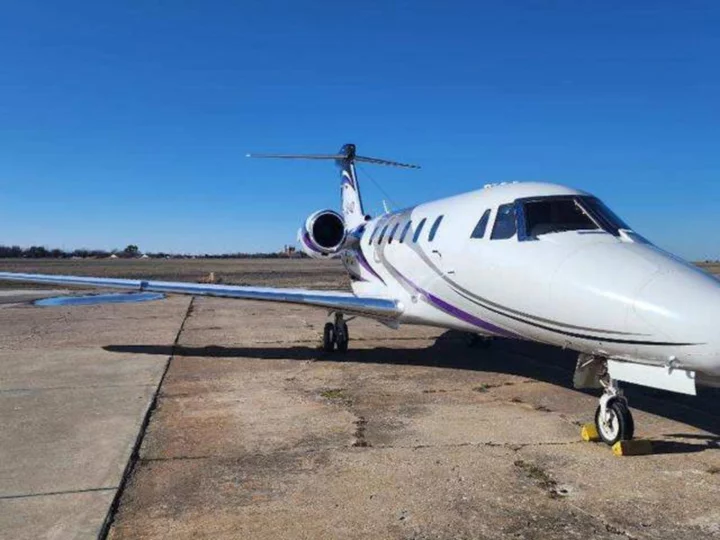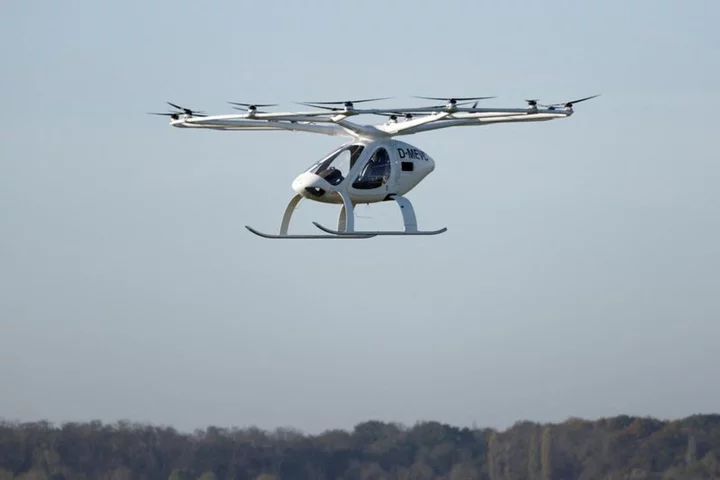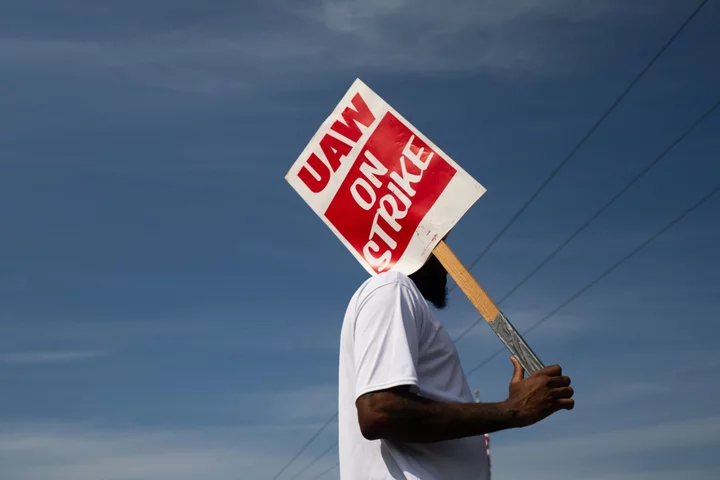The global private jet fleet has more than doubled in the last two decades and the market is on fire, with new industry records set for transaction and dollar volume in 2021 and 2022, according to a new report by the US Institute for Policy Studies.
Private jets emit at least 10 times more pollutants than commercial planes per passenger, disproportionately contributing to the aviation sector's climate impact, according to the report, which was published in May 2023.
What's more, while approximately one out of every six flights handled by the Federal Aviation Administration is private, the sector only contributes 2% of the taxes that primarily fund the agency.
Amid these concerns, one private jet owner has decided to scale back. Stephen Prince, vice-chair of the Patriotic Millionaires -- a group of wealthy Americans pushing for higher taxes which also contributed to the report -- is giving up his Cessna 650 Citation III.
He decided to ditch the plane -- a mid-size, long range corporate jet with room for up to nine passengers -- after he learned how much more carbon-intensive flying private is compared to commercial.
"I was gobsmacked by the fact that by being so in love with private air travel, I was willing to ignore what a horrible travesty I was perpetrating on the environment and on future generations," he tells CNN. "I've got to change. I just can't continue to do this."
The long road back to commercial
Prince has owned half a dozen private jets before the Citation III, which is the largest and most expensive to operate he's ever had -- the running costs alone work out at about $275,000 to $300,000 per year. He says flying private is so good, it becomes addictive.
"It's just absolutely the best way to travel. But I'm going to give it up. I'm just going back to flying commercially, as much as I despise the process after having flown privately for the last six or seven years," he says. "TSA, long lines, canceled flights, lost luggage -- I despise all the things that go along with it. And when you fly first class, it's not cheap, either. But I made my decision back in March this year. And I'm sticking with it, I'm selling it, I'm going to aggressively get rid of it."
The Cessna is currently worth about $1 million and in the current market it should find a buyer pretty quickly.
There's just one catch. Prince, an entrepreneur in the gift card and payments industry, may be ditching his jet -- but he's not going to give up private air travel entirely.
"I have a friend who's going to let me lease his smaller aircraft," he says, "It's a twin turbo, which burns about a fourth of the amount of fuel of the Cessna -- and I'm only going to use it two or three times a year to go out to a pheasant hunting preserve in the northwest corner of Nebraska."
He adds that he has no intention of going out of his way to persuade other millionaires to give up their jets.
"I'm not going out trying to sell this as a broadcast message by any means," he says. "When talking with my conservative, wealthy friends, I certainly don't hesitate to say that they need to do the same thing, but it's not a big mission of mine."
Prince does believe, however, that wealthy people in the US should pay more taxes. "I think that all of us in American society are not paying as much as we need to," he says.
"Nobody wants to pay taxes and they come up with all these explanations and reasons why, but the real reason is that they're greedy. And I am too! We all are. But we all need to become a member of the 'we' society, not the 'me' society. If we're not concerned about the greater good of all mankind, then we're living with a bad set of principles."
Paying the real cost
He's not the only one who thinks so. In line with Prince's thoughts, the Institute for Policy Studies report advocates for higher taxes on both private jet sales and fuel.
The authors recommend a 10% sales tax on used aircraft and 5% on new. They also call for the federal jet fuel tax to be doubled from $0.219 per gallon to $0.438 per gallon for the most frequent private jet users.
As an example, the report notes that Elon Musk -- one of the most active private jet users in the US -- would pay an additional $3.94 million in taxes under these proposed conditions.
The authors of the report calculate that he purchased a new jet, took 171 flights (roughly one every other day), consumed over 220,000 gallons of jet fuel and created 2,100 tons of carbon emissions in 2022 -- 132 times the emissions of the average American.
"Private jets are a reflection of the growing inequality and concentration of wealth and power in very few hands," Chuck Collins, one of the authors of the report, tells CNN.
"From an ecological perspective, we need to decarbonize the aviation sector. And this seems like an awfully good starting point. It's one of the greatest carbon emitters, but it's really a very small number of people. We should have very high taxes, [usage] taxes and fuel taxes that discourage private jet owners."
Collins adds that the construction of private aviation infrastructure should stop altogether, as this form of transportation should be phased out.
"In my community outside Boston, there's a private airport, Hanscom Field, and there's a whole push to expand it because that is the suburban private jetport," he says.
"But people are saying that in the same way we probably shouldn't be building new fossil fuel infrastructure that will push us over the danger line in terms of emissions, we shouldn't be building new infrastructure to serve the private jet class. That's not really the kind of direction we should go in."
The size of the global private jet fleet has increased 133% in the last two decades, from 9,895 aircraft in 2000 to 23,133 in mid-2022, according to the report.
Meanwhile, in Europe, a group of countries including France and Ireland has called on European policymakers to toughen regulations around private jets in order to curb their use. In April, Schiphol airport in Amsterdam announced it is considering banning private jets from its grounds altogether.
"I think that's the right way to go," says Collins. "It may be difficult to outright ban private air travel, but we should certainly make it pay its real ecological and social costs."









